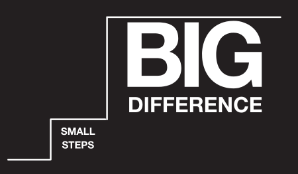Criminal Convictions
The University welcomes students from a wide variety of backgrounds and recognises that some of its applicants/students:
- may have criminal convictions;
- may be charged with, or convicted of a criminal offence during the course of their study;
- may apply for a course that requires, or contains activities that require, a Disclosure and Barring Service (DBS) check and therefore the disclosure of criminal convictions.
Disclosure of Criminal Records
We have a positive approach to supporting our students and disclosure of a conviction does not automatically result in the withdrawal of an offer or the termination of registration. To this end London Metropolitan University has become a signatory to Unlock, which focuses on giving a fair chance for students with conviction.
However, the University has obligations to protect staff and students, including those under 18 and adults at risk from harm. Because of this, the University requires its applicants and students to be honest, open and to disclose their status with regard to certain criminal convictions appropriately and in accordance with the University’s policy.
What needs to be declared, and process depends on whether you are:
- applying for or are a student on a Relevant Course (see "Applicants applying for or Students on Relevant Courses and DBS Checks" section).
- all other applicants and students (see "Disclosure of Criminal Records - Applicants and Students not on Relevant Courses" section).
Relevant Courses include (but are not limited to) Dietetics, Counselling Psychology, Social Work, Initial Teacher Training (e.g. PGCE), Primary Education, Early Childhood Studies, Montessori Early Childhood Practice and Early Years Education, and any other courses that involve Regulated Activity.
Disclosure of Criminal Records - Applicants and Students not on Relevant Courses
Part 2 of the University’s General Student Regulations sets out the requirements relating to disclosure of criminal convictions. It is available here: 2023-24 GSR02 - Criminal Convictions
Applicants
If you are not applying for a place on a Relevant Course you only need to disclose unspent convictions that involved:
- any kind of violence including threatening behaviour, offences concerning the intention to harm or offences which resulted in actual bodily harm.
- any sexual offences, or offences of harassment or stalking.
- the unlawful supply of controlled drugs or substances where the conviction concerns commercial drug dealing or trafficking (drug offences only involving possession are not relevant offences).
- firearms, explosives, knives or other weapons.
- Arson
- Terrorism
If your conviction does not involve any of the above offences, you do not need to disclose it to the University (unless you are applying for a place on a Relevant Course). Guidance on spent convictions is given below.
Unspent convictions
Apart from prison sentences of over 48 months (4 years), all convictions become spent after a period of time. Cautions become spent immediately.
If you are not applying for a place on a Relevant Course, you do not need to disclose cautions or spent convictions to the University.
For further details on when convictions become spent, please see guidance from the Ministry of Justice: Guidance on the Rehabilitation of Offenders Act 1974 (in particular, section (2) REHABILITATION PERIODS on page 4).
When and how to disclose
You only need to disclose an unspent conviction relating to the above offences, once you have been made an offer of a place. You will be asked to give a full and frank account of the conviction to the member of admissions staff, who will then inform the course leader and Head of School.
When making a disclosure you should bear in mind that, as well as the details of the offence and the sentence, the University will consider the circumstances surrounding the offence and your explanation, as well as whether the individual's circumstances have changed since the offence. So you may want to include details of how things have changed.
Guidance
This flowchart guides you through the process of making a disclosure:
Applicant Disclosure of Criminal Convictions
Criminal proceedings while a student
If you are not on a Relevant Course you only need to disclose criminal proceedings that involve:
- any kind of violence including threatening behaviour, offences concerning the intention to harm or offences which resulted in actual bodily harm.
- any sexual offences, or offences of harassment or stalking.
- the unlawful supply of controlled drugs or substances where the conviction concerns commercial drug dealing or trafficking (drug offences only involving possession are not relevant offences).
- firearms, explosives, knives or other weapons.
- Arson
- Terrorism
If the proceedings do not involve any of the above offences, you do not need to disclose it to the University (unless you are on a Relevant Course).
When and how to disclose
You must immediately notify your Course Leader if you are charged or convicted of or you receive a police caution, reprimand or warning in respect of an offence that involves the matters listed above.
Any failure of a student to disclose their status to the University will, of itself, be regarded as a serious breach of trust and honesty and may lead to disciplinary action under the Student Conduct Regulations, regardless of the nature of the actual conviction.
When making a disclosure you should bear in mind that, as well as the details of the offence (or alleged offence) and any sentence, the University will consider the circumstances surrounding the offence (or alleged offence) and your explanation.
Guidance
This flowchart guides you through the process of making a disclosure:
Applicants applying for or Students on Relevant Courses and DBS Checks
In addition to the regulations applicable to all students, students and applicants on relevant courses have further obligations. Your course handbook will give you more details. Relevant courses include Social Work, Youth Work, Dietetics, Teacher training courses and any course that involves working with children and vulnerable adults, such as a Relevant Placement.
The University carries out DBS checks in line with the DBS code of practice
Process for DBS Checks for Students (flowchart)
Convictions Recommendation Form
Self Declaration
Students applying for or studying a Relevant Course or a course with a Relevant Placement will be asked to complete the Self Declaration Form below to disclose any convictions that are not eligible for filtering and any other matters that may have a bearing on their suitability to undertake regulated activity.
Criminal Convictions Self Declaration Form
Can the University Accept Existing DBS Certificates?
The University can accept an existing DBS certificate if all the following conditions are met:
- The student/applicant produces the original DBS certificate; and
- The original DBS certificate is checked for authenticity (see Security Features at gov.uk/disclosure-barring-service-check/tracking-application-getting-certificate); and
- The DBS check is for the correct workforce;
- and The student/applicant has subscribed to the Update Service (see gov.uk/dbs-update-service); and
- A DBS Status Check is performed by the University to establish whether there have been any changes to the student’s/applicant’s status since the DBS certificate was produced (seehttps://secure.crbonline.gov.uk/crsc/check?execution=e2s1).
If any of the above conditions are not met, the University cannot accept the existing DBS certificate and a new check must be carried out.
Filtering
On the 29 May 2013, legislation came into force that allows certain old and minor cautions and convictions to 'filtered' or 'protected'. This means certain convictions and cautions will no longer be disclosed on DBS certificates and do not need to be disclosed to the University. Please see the links below for further information and guidance:
Some offences will never be filtered. For further information please see

